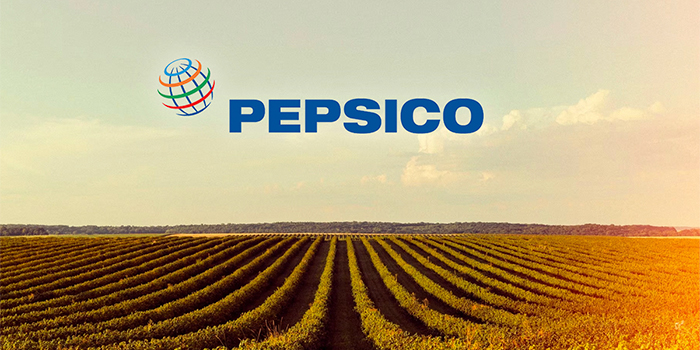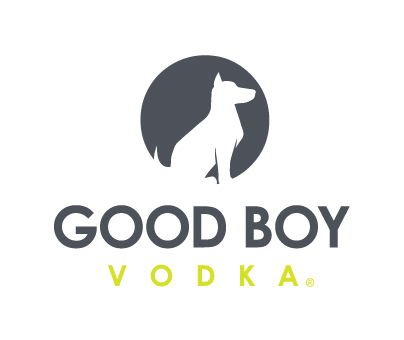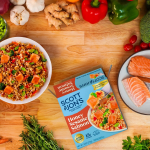PepsiCo to Invest $216M in U.S. Regenerative Ag as Part of pep+ Sustainability Initiative

PepsiCo plans to invest $216 million in regenerative agriculture projects stretching across more than three million acres of U.S. farmland as part of its ongoing pep+ sustainability program.
The food and beverage giant has partnered with three farmer-facing organizations – Practical Farmers of Iowa (PFI), Soil and Water Outcomes Fund (SWOF) and the IL Corn Growers Association (ICGA) – with whom it aims to “deliver approximately three million metric tons of greenhouse gas (GHG) emission reductions and removals” by 2030 and achieve net zero emissions by 2040, a decade before the Paris Agreement deadline.
“We’ve been [focused on] sustainability for a long time, [in order to keep] farms strong in the future and [sustain] that supply volume for ourselves in a way that is consistent with human rights, environmental concerns, etc,” said PepsiCo senior director of sustainable agriculture strategy and external management Margaret Henry while alluding to PepsiCo Positive (pep+), the company’s end-to-end sustainable business transformation.
According to Henry, PepsiCo views its model of intervention in the agricultural arena as a three-legged stool. The first leg of the stool is financial and looks different for each partner, with payment models varying from outcome-based to practice-based. The second leg of the stool is agronomic advice, which Henry says matters “tremendously.”
“I’ve seen more than once where somebody tries something [new] and it ruins their core crop or they can’t get it and plant it at the right time. And then their whole harvest is ruined and by golly, no one is going to try that for an entire generation” she told NOSH. To help mitigate these risks, PepsiCo will provide its partners with agronomists to share farming suggestions based on factors such as topographical elements and soil quality.
“Sometimes the heavy risk of new conservation practices gets in the way, but PepsiCo’s partnership helps to lessen some of the risk involved for farmers to try a new practice that will make a big difference,” said ICGA farmer leader Dirk Rice.
The third leg of the stool is cultural, with the company focused on helping farmers learn from one another and emphasizing that “this is a human change as much as it is an ecological change.”
Ultimately, the company will help farmers work to adopt climate-smart agriculture practices by being “shoulder-to-shoulder with farmers as they work to make soil healthier, sequester carbon, improve watershed health and biodiversity and improve their livelihoods,” according to the release. Despite these efforts, the company does not currently plan to label its products as being “regeneratively farmed.”
The announcement comes weeks after PepsiCo received scrutiny from financial think tank Planet Tracker for its failure to disclose the material financial impact associated with potential Carbon Pricing Mechanisms (CPMs) associated with its Scope 3 emissions. The report found that, unless future emissions are mitigated, the company will miss its science-based targets by 58%.
Additionally, PepsiCo and its competitor The Coca-Cola Company were ranked as the world’s top plastic polluters for the fourth consecutive year in 2021, according to Break Free From Plastic.
Over the past year, regenerative ag has seen elevated interest from food producers amid heightened concerns about the food industry’s role in climate change. That interest has led to the formation of three new certifications: Regenified (formerly Regen Earth Verified), Land to Market and Certified Regenerative by A Greener World (AFW).
Individual CPG brands are also taking action. In August, Nature’s Path released its second generation of limited edition Regenerative Organic Certified (ROC) oatmeal. Two months later, chickpea-based food brand Banza announced a partnership with nonprofit group Green America’s Soil Carbon Initiative (SCI) program in which the two will collaborate to quantify the impact of chickpea crops on restoring soil health.
Through the farmer partnerships, Pepsi will work with PFI to reach approximately 1.5 acres; SWOF to reach nearly 1 million acres; and the ICGA to reach approximately 600,000 acres by 2030.
“PFI farmers have known for years that a supply chain that encourages farmers to grow only a couple of crops is not sustainable – it’s not diverse or resilient enough for our changing world,” said PFI executive director Salley Worley in the release. “When we plug farmers into our powerful network, education resources, funding and technical support, they’re able to build more resilient farms.”
Based on current progress, the company claims the collaborative efforts are projected to deliver more than 500,000 regenerative acres by the end of 2023. According to Henry, PepsiCo will soon announce additional pep+ initiatives around packaging and its overall climate agenda.

















